
About Us
The International Coalition of Sites of Conscience–Europe (ICSC-Europe) was launched in 2015 as a subsidiary, regional entity of the U.S.-based International Coalition of Sites of Conscience (ICSC), to gather the support of European governments, foundations and civil societies, and expand the work of Sites of Conscience in Europe and around the world. ICSC-Europe is registered as an AISBL (international not-for-profit-organization) in Belgium and is housed at the Red Star Line Museum (Antwerp).
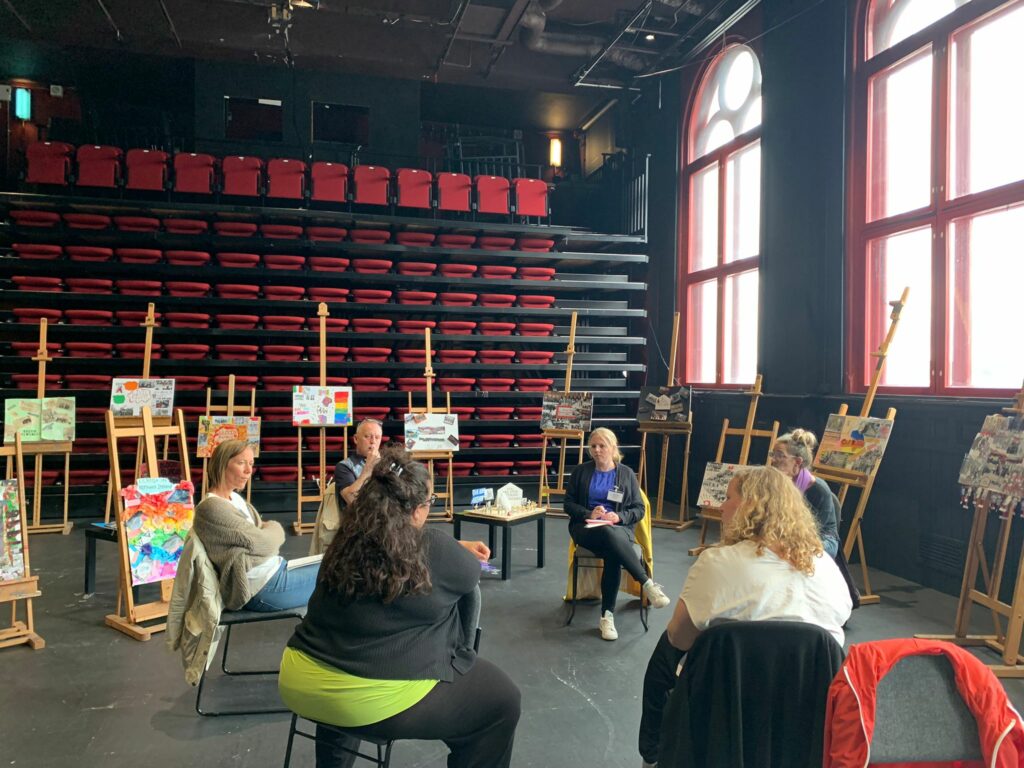
Mission
ICSC-Europe works to support museums, heritage sites, sites of remembrance and memory initiatives to activate the power of memory to inform and fortify civic action that challenges contemporary forms of intolerance and violence. In doing so, it serves to amplify marginalized voices and counter the simplistic narratives that feed divisive rhetoric, negative stereotypes and violence.
ICSC-Europe represents a network of 54 museums, heritage sites, sites of remembrance and memory initiatives in 23 countries, ranging from Le Bois du Cazier in Belgium, to the Museum of Free Derry in Northern Ireland, and the War Childhood Museum in Bosnia and Herzegovina.
What We Do
In service of its mission, ICSC-Europe facilitates regional and cross-regional collaboration and partnerships; provides technical and programmatic support to its members; and conducts strategic advocacy for individual members and the Sites of Conscience movement as a whole.
Since its inception, ICSC-Europe has launched new educational and cultural initiatives in Europe and the MENA region, developing methodologies for museums and historic and heritage sites to engage their publics in programming that promotes democratic participation and civic engagement; connecting and promoting exchange among migration museums to build inclusive narratives around migration and forced displacement; developing innovative approaches to conflict transformation; starting new conversations on the role of culture, art and heritage in today’s polarized societies; and combating hate speech and discriminatory discourse.
With its presence in Europe, ICSC-Europe has also facilitated new partnerships with like-minded organizations to boost our efforts to build democratic, equal and inclusive societies based on respect for human rights, human dignity, the rule of law and fundamental freedoms.
In Action
MEMENTOES: Developing Video Games for Museums to Foster Empathy Around Sensitive Topics
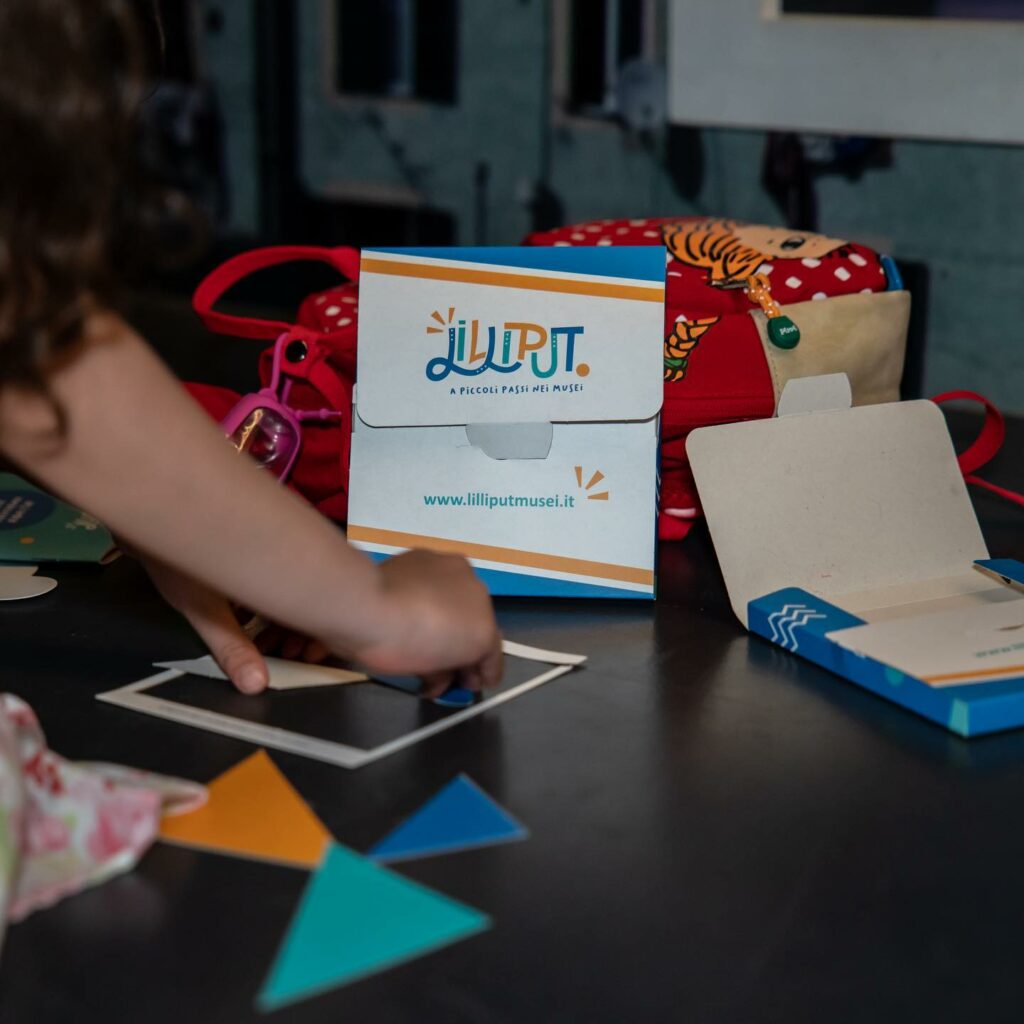
Implemented in 2022, the Lilliput Plus project was an initiative of the multidisciplinary Lilliput Network and ICSC-Europe to pilot and systematize a new methodology for European historic museums and cultural centers to more effectively engage families in their programming. The project, awarded under the Erasmus + KA210-ADU – Small-scale partnerships in adult education funding line, helped advance ICSC-Europe’s mission to activate the role of historic museums, transforming them into dynamic spaces for civic engagement and active participation. From March to October 2022, three European Sites of Conscience–Istituzione Musei del Mare e delle Migrazioni (MuMA) in Italy, the War Childhood Museum in Bosnia and Herzegovina, and Our Lord in the Attic in The Netherlands–tested the methodology to effectively engage families and children in exploring their exhibits through tailored content. The knowledge gained from this approach was shared at “Museums and Families for Change,” an international workshop held in Genoa, Italy. The workshop brought together representatives of more than 25 European historic museums and cultural centers, and family education experts to enhance the role of historic museums as spaces for critical thinking in society. Learnings and best practices were shared at a dissemination event on October 25, 2023.
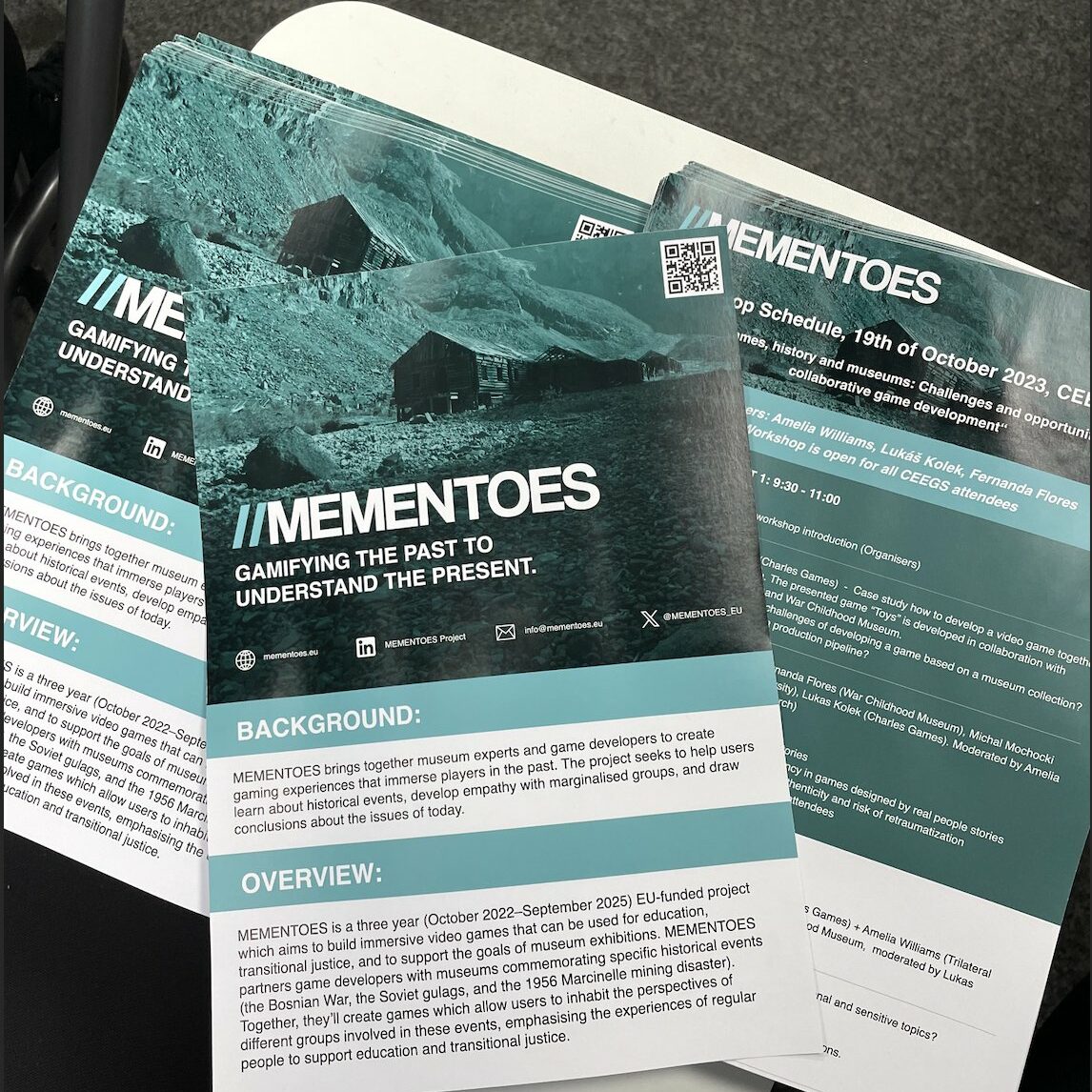
ICSC-Europe was invited to join the Ethics Advisory Board (EAB) of the MEMENTOES project, which aims to create video games inspired by the real-life experiences of those who have lived through monumental historical events, and derive a set of guidelines for the effective design of high-quality, empathy-inducing digital games around sensitive topics. Awarded under Horizon Europe, the project supports the development of three video games created in collaboration with three of ICSC-Europe’s members, the War Childhood Museum (Bosnia and Herzegovina), Le Bois du Cazier (Belgium) and Gulag.cz (Czech Republic). The goal is to create an authentic digital storytelling platform that draws upon the experiences of real people and historical events to fulfill the museum’s responsibility to provide immersive, personal and transformative experiences that foster empathy toward the represented communities. While the technology used for the project can help advance valuable issues surrounding history, remembrance, representation and transitional justice, it also presents risks related to ethical principles, data protection requirements and its appropriation by groups seeking to promote harmful and divisive messages. The project’s Ethics Advisory Board is working over a period of three years to advise on these emerging ethical, privacy and social challenges.
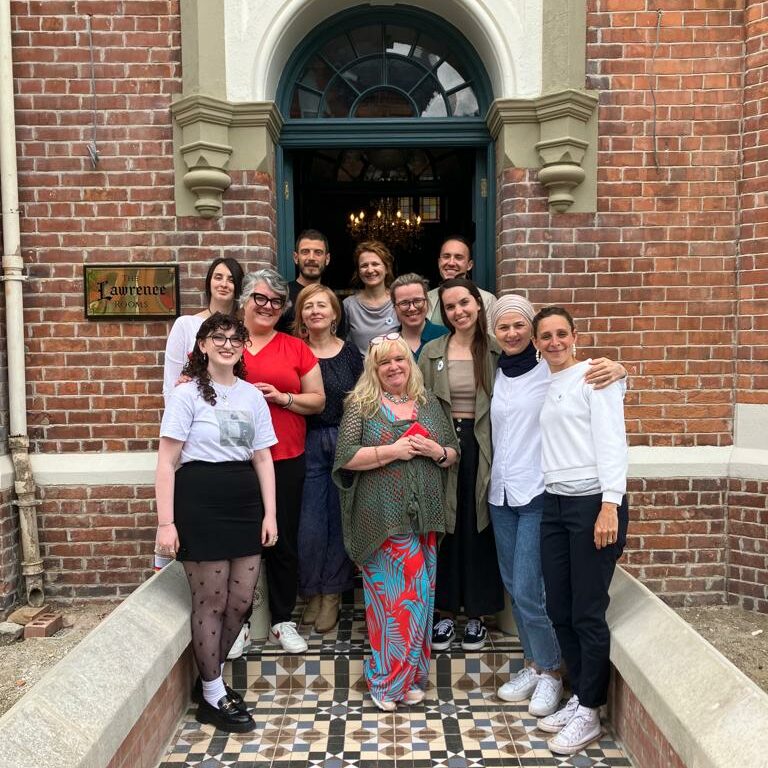
From June 5-22, 2023, ICSC-Europe partnered with the Bloody Sunday
Trust to hold a six-day international seminar on conflict transformation in Derry, Northern Ireland. The seminar brought together eight civil society organizations from the Balkans to explore how the “Derry Model” and
the Northern Ireland experience can support and expand their work and practice fostering truth, justice and lasting peace in the region. Through researchers’ and practitioners’ presentations as well as first-hand actors’ sharing of experience, participants explored community-based truth-seeking processes and victim-driven advocacy efforts in the Northern Ireland context, including challenges and opportunities in building and maintaining lasting peace at community levels. After four intensive days of meetings and rich discussions, participants identified key priorities in moving forward peace-building and reconciliation in the Balkans. These are currently being incorporated into a proposal for a more expansive project that will support civil society actors to expand their work in the Balkans region by developing and testing new approaches to engage local leaders (religious leaders, politicians, former combatants) in effective peacebuilding and reconciliation through participatory action research.
Reshaping Harmful Narratives around Migration and Forced Displacement
Best Practices in World War II Heritage and Youth Engagement
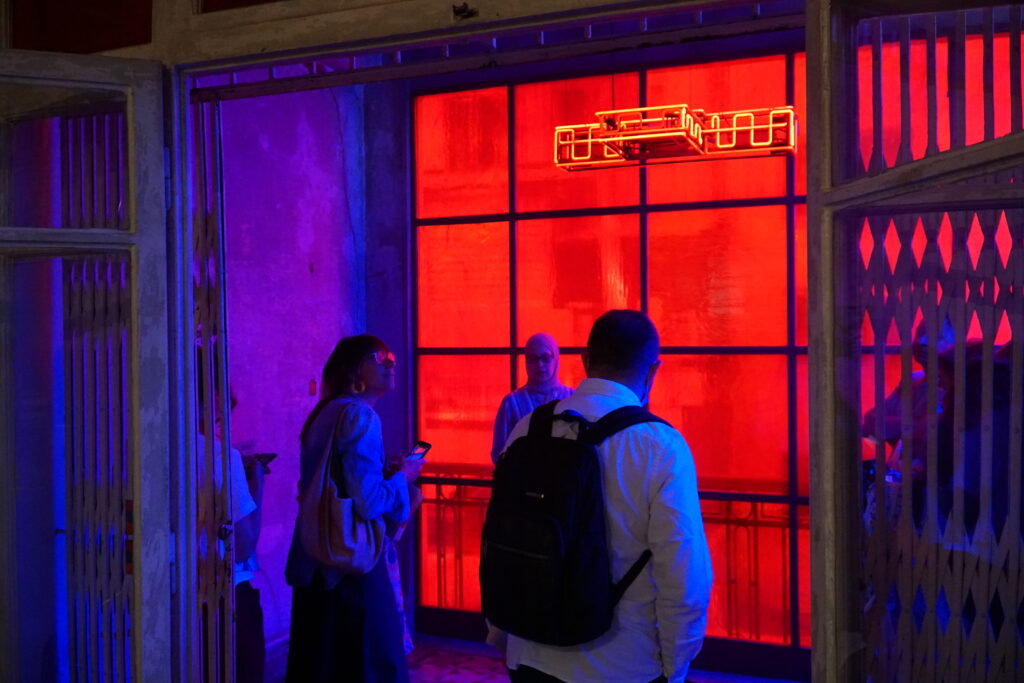
ICSC-Europe and the Hrant Dink Foundation (HDF), a Site of Conscience in Turkey, have partnered to support the implementation of Utilizing Digital Technology for Social Cohesion, Positive Messaging and Peace by Boosting Collaboration, Exchange and Solidarity, a multilayered project aimed to promote peace and reduce discrimination in digital spaces in the Middle
East and North Africa (MENA) region, using emerging technologies. The project, awarded to HDF by the European Union Delegation in Lebanon in December 2021, has engaged 23 Sites of Conscience and 16 youth in the MENA region in capacity building training to strengthen their abilities to monitor, document and raise awareness about hate speech. As a result of this project, six Sites of Conscience and youth representatives from Egypt, Lebanon, Syria and Yemen launched an awareness campaign for World Refugee Day on June 20, 2023.
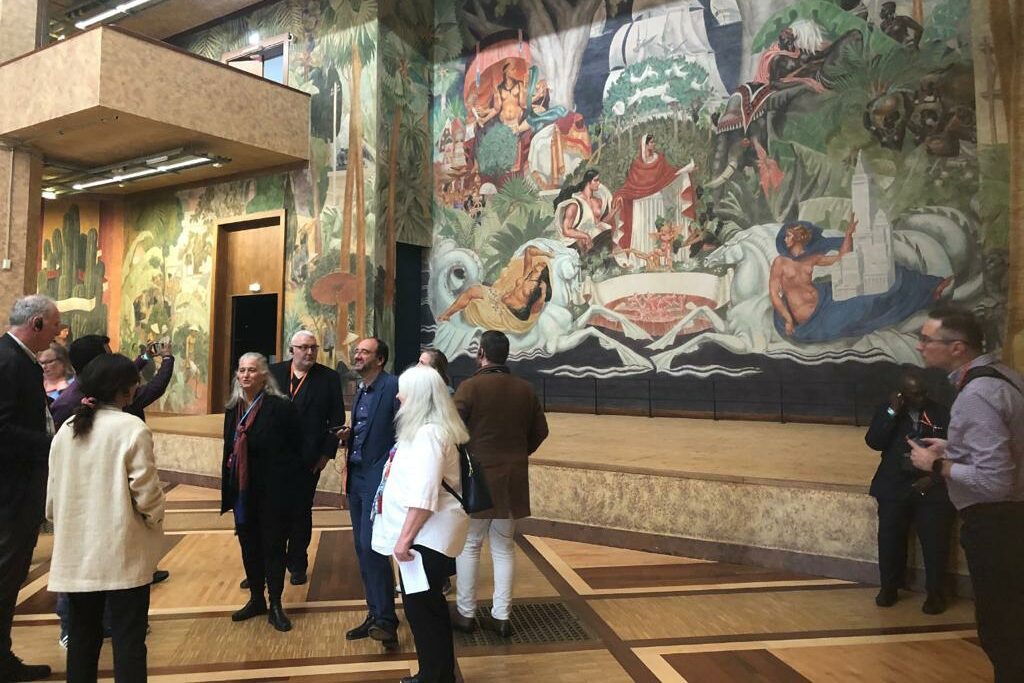
ICSC-Europe supports the work of European migration museums in harnessing the power of their interconnected transgenerational narratives and resources to transform individual stories of migration and forced displacement into inclusive, collective memories that can bring new dimensions to these experiences. With that in mind, ICSC, ICSC-Europe and the Musée National de l’Histoire de l’Immigration (France) partnered to host the Sharing Museums Symposium, a global meeting of 40 museums, artists and heritage professionals from around the world to exchange inclusive heritage and museum practices; analyze the challenges faced by migration museums today; identify gaps in the representation of migration in museums; and collectively devise approaches to correct these records to foster more inclusive and equitable narratives.
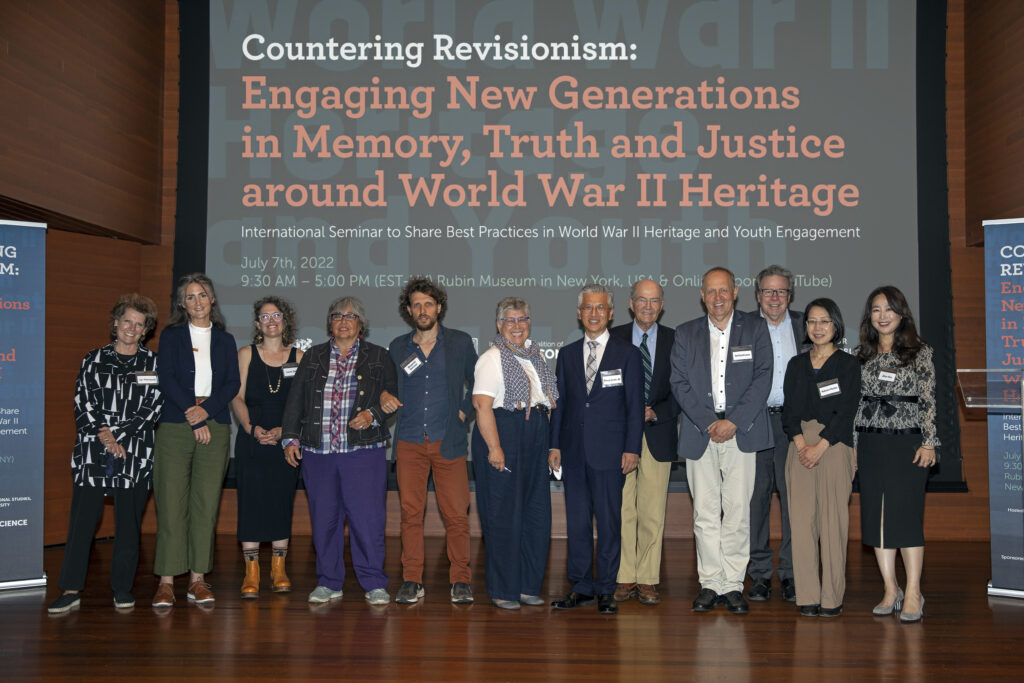
To highlight best practices and deepen the role of Sites of Conscience and heritage sites in the promotion of more inclusive narratives and the countering of revisionist narratives of World War II, in July 2022, ICSC-Europe and the Institute of International Studies at Seoul National University brought together representatives of Sites of Conscience and other cultural and heritage sites that shared underrepresented narratives related to WWII, in order to amplify strategies to promote more inclusive histories for future generations; provide tools to counter historical revisionism; and offer platforms for youth to take leadership roles in continuing these vital conversations.
Contact Information
Global Networks Program Director
Email: sfernandez@sitesofconscience.org
Montevideostraat 3
2000 Antwerp
Belgium
